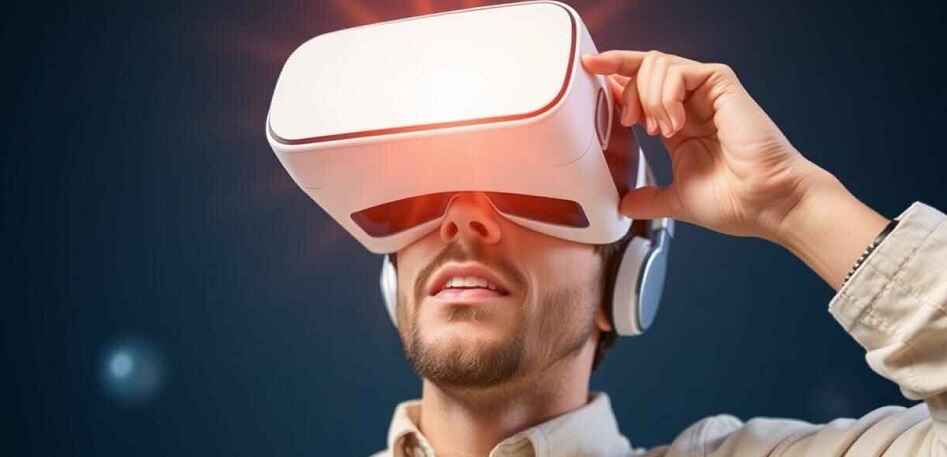Virtual reality, or VR, has advanced significantly in recent years and is currently being utilized in numerous industries. One area where VR is having a big impact is real estate. This new technology is changing the way properties are marketed, viewed, and sold, making it much easier and more immersive than we ever imagined.
What is Virtual Reality?
You can interact with 3D environments in a computer-generated world called virtual reality (VR). Wearing a virtual reality headset allows you to enter a virtual environment where you may move about and interact just like in real life. It feels as though you are sitting in your living room yet in a completely different universe.
How is VR Changing Real Estate?
Virtual Reality (VR) isn’t just for games or fun anymore. It’s changing the real estate industry and the way properties are bought, sold, and experienced. Here’s how VR is making a difference:
- Virtual Home Tours: Instead of looking at photos or watching boring videos, VR lets you walk through a property and explore every room just like you would in person. You may observe how furniture fits together, gauge the size of the area, and even take in the window views.
- Faster and Easier Property Search: Searching for a new home takes a lot of time. With VR, you can tour many properties quickly, from anywhere in the world. This helps you make decisions more quickly by saving you time and effort.
- Improved Decision Making: Seeing a property in person can sometimes be misleading. Lighting, staging, and the time of day can change how a space feels. VR gives you a more accurate view, helping you make better decisions about buying or renting.
- Boosting Sales: VR helps properties sell faster. When a buyer can thoroughly inspect a home without ever having to be there, they are more inclined to submit an offer.
Future of Real Estate with VR
Virtual Reality (VR) is quickly becoming a key technology in the real estate industry, and its impact is only expected to grow. As technology improves and becomes a bigger part of our daily lives, the future of real estate with VR looks very promising. Here’s a look at what might happen:
Widespread Use and Accessibility
As VR technology gets cheaper and easier to use, it will likely be used widely in real estate. Both buyers and sellers will expect VR tours to be as common as online listings with photos are today. With more people owning VR headsets and the technology becoming more accessible, it will become a common tool in real estate transactions.
Better Virtual Tours
The future of VR in real estate will probably have even more advanced virtual tours. We can expect tours that are more interactive, with voice-guided tours, virtual agents answering questions in real-time, and the ability to customize and interact with the property environment more easily. For example, buyers might be able to see how a space looks at different times of the day or with various interior design styles, giving them a better understanding of the property’s potential.
Augmented Reality (AR) Integration
While VR creates fully immersive virtual environments, Augmented Reality (AR) adds digital elements to the real world. Combining AR with VR could further revolutionize real estate by allowing potential buyers to view properties using both technologies. Imagine visiting a property in person while wearing AR glasses that show additional information, like the property’s history, energy efficiency stats, or the ability to visualize renovations and furniture placements in real-time.
Remote Transactions and Virtual Closings
With advancements in VR, the real estate buying process could become entirely remote. Buyers could view properties, negotiate deals, and even close transactions all within a virtual environment. Digital contracts, secure payment methods, and virtual notary services could make the process smooth and efficient, eliminating the need to be physically present at any stage of the transaction.
Conclusion
Virtual Reality is truly changing the real estate industry. It offers a more immersive, convenient, and efficient way to view and buy properties, benefiting buyers, sellers, and agents. While there are still some challenges, the potential benefits are much greater. VR is an exciting development for the future of real estate. As the technology keeps improving and becoming more accessible, it’s only a matter of time before VR becomes a standard part of every real estate transaction.

